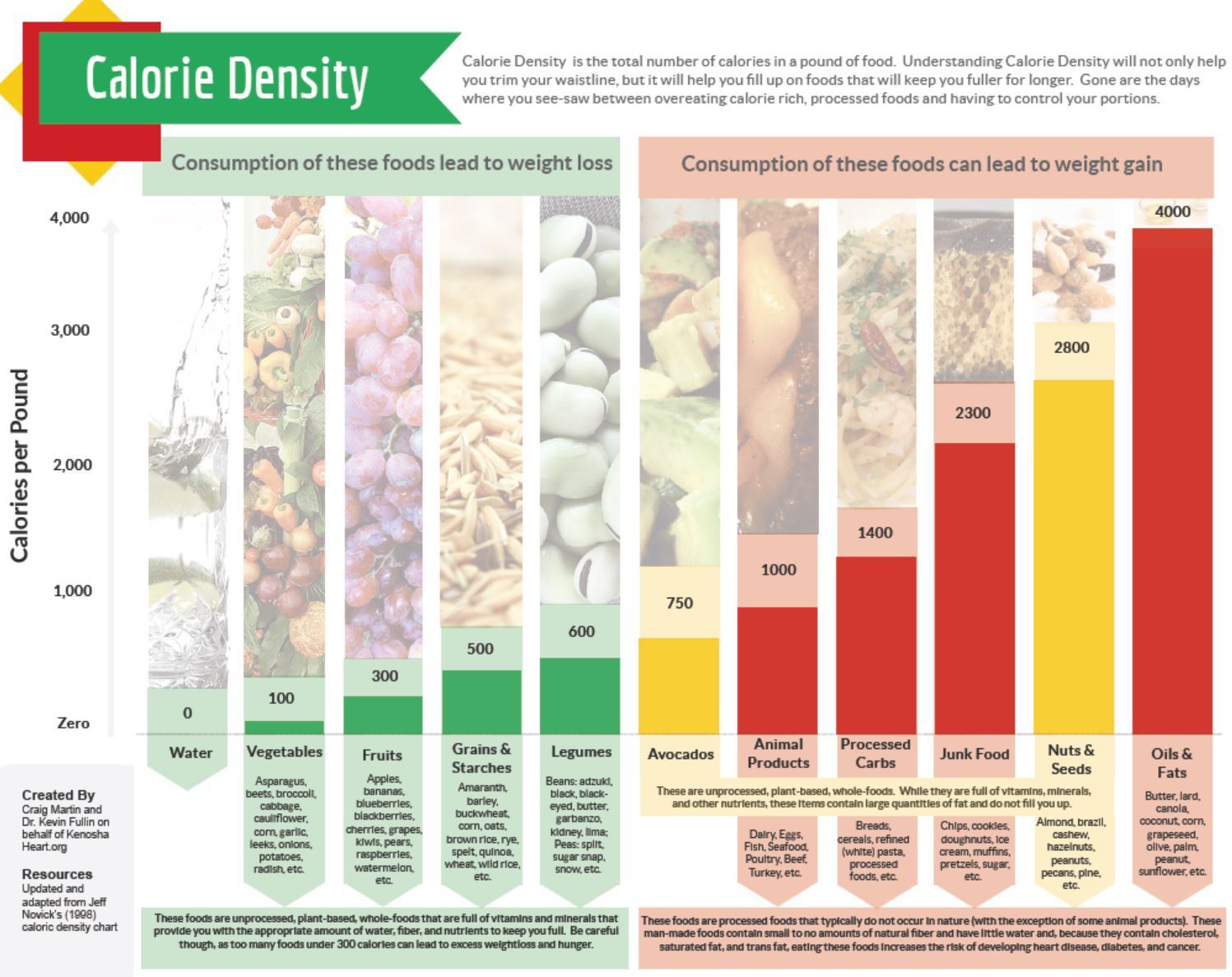Did you know there is up to 40 times difference in the calorie density of food? Here our nutritionist Ed gives some great insight on the ins and outs of calorie density!
The calorie density of a food gives you the amount of calories in a given weight of food. In the medical literature the calorie density is most of the time given per gram but for convenience it’s easier to use a pound. It’s easier to visualize a pound of food on a plate than a gram. Because people on a daily basis tend to eat a similar amount of food, by weight, thus when you eat a low calorie density diet you will consume less overall calories. Calorie density doesn’t tell you if a food is healthy or not, however, the low calorie density foods are all healthy plant based foods. With the use calorie density there is no need to measure portion sizes or to count the calories, as the calorie density is a constant number for each type of food.

There is up to a 40 times difference in the calorie density of foods, non-starchy vegetables contain on average 100 calories per pound and oils and fat contain 4000 calories per pound. Off course no one would eat a pound of oil, but one tablespoon of oil already contains 120 calories. The recommended overall calorie density of your food is 700 calories per pound. Scientific studies have shown that when you have a diet with an overall calorie density of 400 calories, you will lose weight even when you have a sedentary lifestyle. If the overall calorie density goes up to 800 calories you can still lose weight with moderate exercise. A diet with an overall calorie density of 1200 calories will make you gain weight, except when you are an athlete.
The reason why the low calorie density foods are all whole plant foods is because these foods are naturally high in water and dietary fibre. As added benefit these foods are also high in nutrients. When foods get refined they get stripped from their water, dietary fibre and nutrients. This makes the refined foods much higher in calories and less nutritional value. Whole grains for example contain on average 500 calories per pound and refined grains around 1400 calories. In addition they lose up to 80% of their nutritional value. Pasta is a processed food that is an exception to this rule, because when you cook pasta it absorbs lots of water, which has a calorie density of 0 and thus brings the overall calorie density down.


